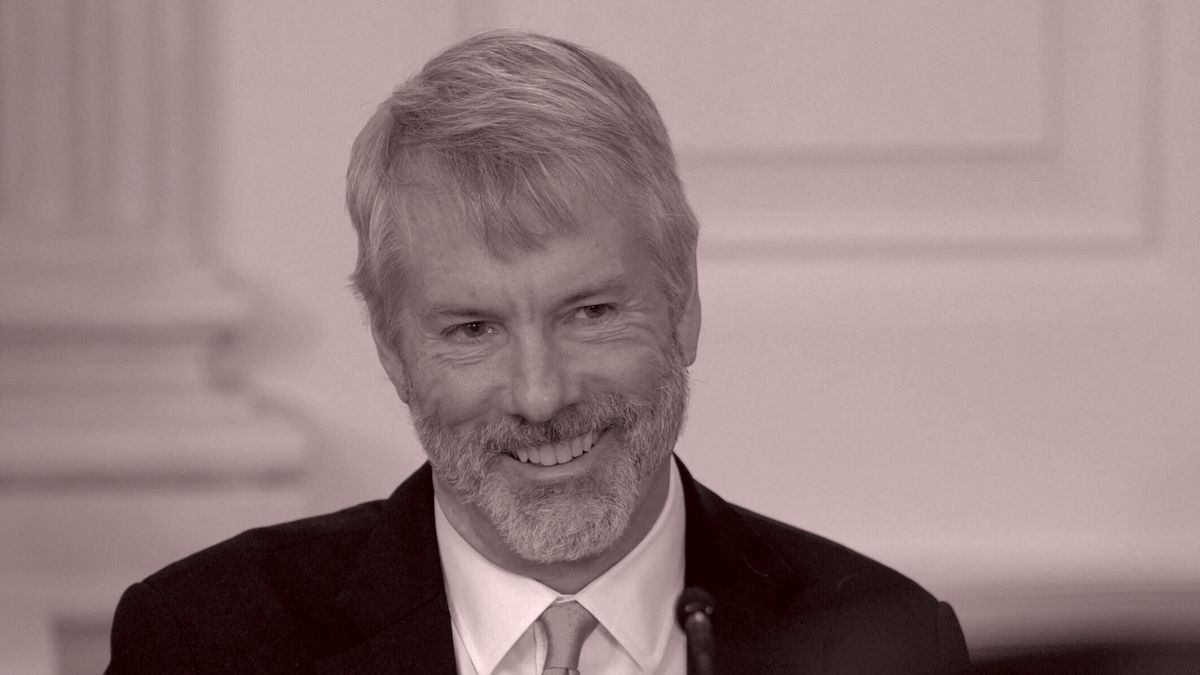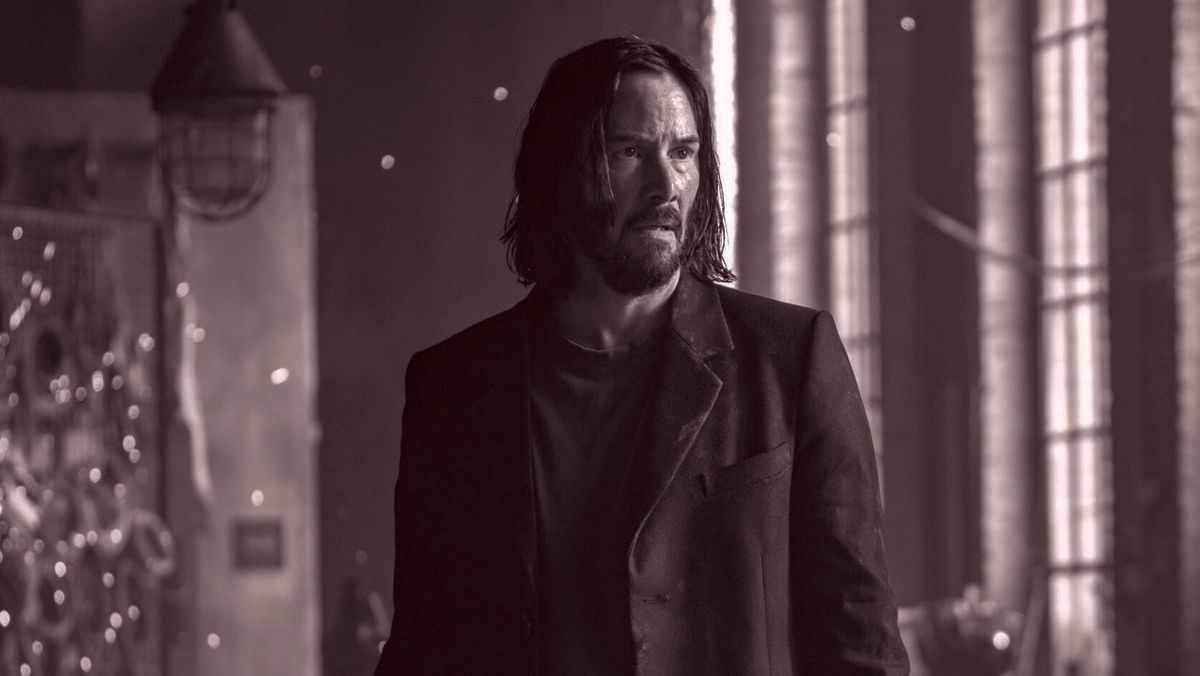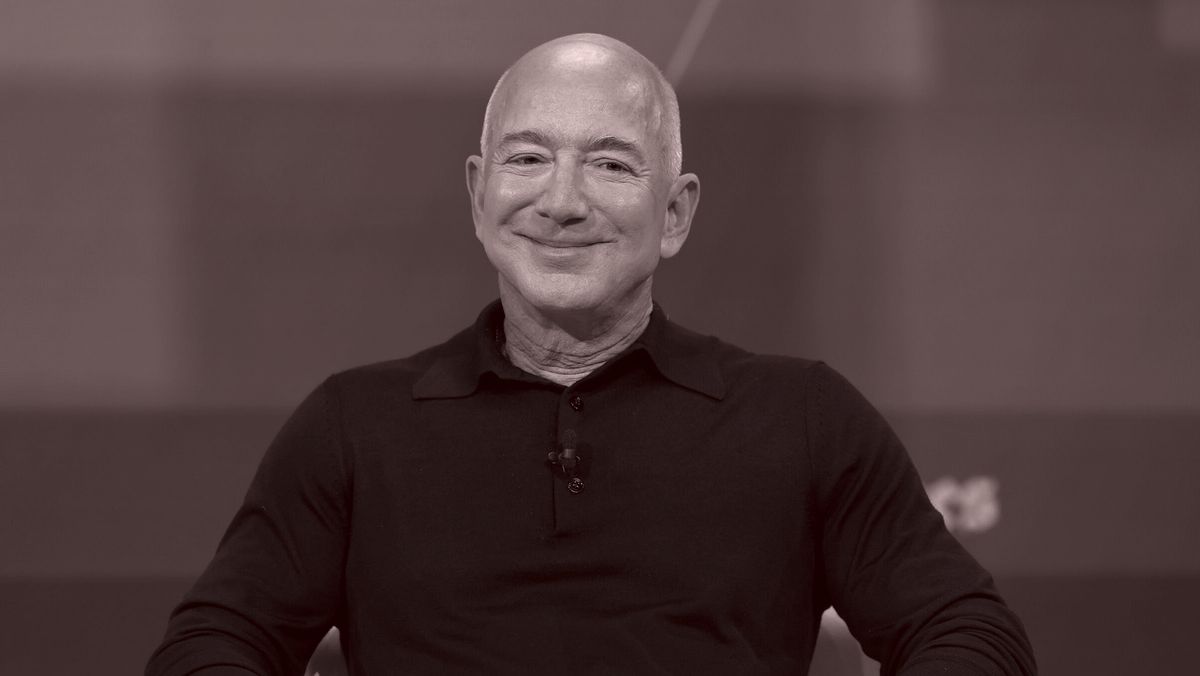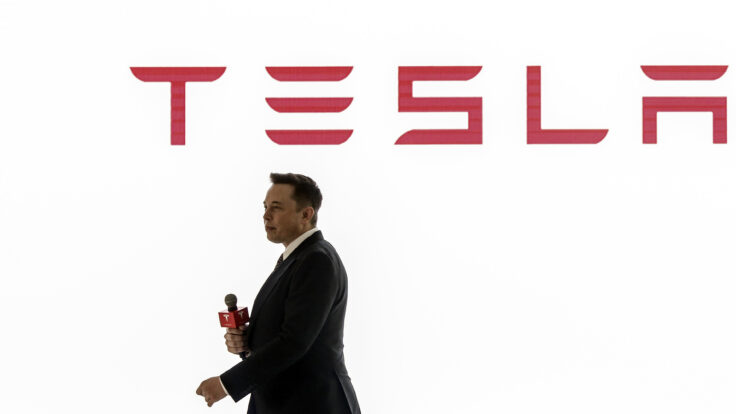Welcome to Dry Powder. I’m Bill Cohan. Congrats to my Dukies on
an exciting win last night at the Dean Dome at UNC—and now it’s on to Charlotte for the ACC Tournament, where hopefully this amazing team can continue its winning ways.
Tonight, I consider the antics of the Trump crypto bros, starting with David Sacks, the entrepreneur and investor and podcaster influencer who has remade himself as Trump’s “crypto czar.” Is Trump’s decision to create a Fort Knox–style Strategic Bitcoin Reserve “rat poison squared,” as
Warren Buffett once suggested, or a rare sane policy emanating from the new administration? I dig in below.
But first…
|
- Play it again, Sam: Oh, dear. I’m not sure what Sam Bankman-Fried thought would happen when he defied the rules of Brooklyn’s Metropolitan Detention Center by giving a 45-minute interview to Tucker Carlson about his life behind bars. We already know it sucks, as I reported last May, after visiting him there. Predictably, Sam made
things worse with his unauthorized stunt, which landed him a few days in solitary confinement and may end up being his one-way ticket out of Brooklyn to another federal facility far from here.
In the interview, which appears to have been filmed on an M.D.C. computer’s built-in camera—which is reserved for conversations between prisoners and their attorneys and/or families—Sam was wearing the same brown jumpsuit as when I met with him, still noticeably thinner and every bit as bedraggled.
He spoke plaintively about what prison has been like for him, about meeting Diddy, and how incarceration has changed his perspective. “Time changes when you’re in prison,” he said, adding that he’s not sure he can make it to the end of his 25-year sentence, when he’ll be 57. (Sam turned 33 last week.)
S.B.F. had clearly been planning this stunt for some time. In a Google Doc he created amid the collapse of FTX, which was later
filed by prosecutors during his sentencing, Sam listed “Go on Tucker Carlsen [sic], come out as a republican” among the strategies that might help shift his public image as a Democratic megadonor. (Also on his list: “Come out against the woke agenda.”) And indeed, the Tucker interview appears to be part of a Hail Mary attempt
to secure a pardon from Trump, joining a number of alleged white-collar criminals seeking clemency from an administration that has deprioritized investigations into crypto, frozen
enforcement of anti-corruption laws, and instructed the Consumer Financial Protection Bureau to stop pursuing any lawsuits.
But getting Trump to pardon him is going to be a long putt, as I’ve
previously written. Back when he was still running FTX, Sam offered Trump $5 billion not to run for president in 2020. Sam is also basing his appeal on the argument that Sullivan & Cromwell, the tony white shoe Wall Street law firm, deceived him when it was representing FTX, prior to the company’s bankruptcy. I’m not sure that’s a winning legal argument, but it’s certainly not going to win over the president, especially since S&C is representing Trump in his appeal of his
conviction in the Stormy Daniels case. It also doesn’t help Sam’s case that Trump’s appointee as the new U.S. Attorney for the Southern District of New York is none other than Jay Clayton, a longtime S&C partner.
In any event, Sam now has some extra alone time to think about all these various gambits he’s trying, and their consequences. Sam’s P.R. advisor, Mark Botnick, resigned after seeing the Tucker interview, which he didn’t know
about (and, presumably, would have advised against). Botnick declined to comment beyond what he’s already said publicly, while the Metropolitan Detention Center, and S.B.F., did not respond to a request for comment.
|
|
|
A MESSAGE FROM OUR SPONSOR
|
Take your first step into space on a zero gravity flight.
Flying on Zero-G’s specially
modified aircraft, you will experience true zero gravity where you can float, flip, and soar as if in space. It’s not a simulation–it’s real life, minus gravity.
Whether you’re a training astronaut, a scientist conducting ground-breaking research, or a civilian pursuing a lifelong dream, it all starts in the same place: with Zero-G.
Only a fraction of humanity has experienced zero gravity. Let’s change that.
Use code PUCK10 to receive a 10% discount when booking on GoZeroG.com
|
|
|
And now to the main event…
|
|
|
The crypto faithful believe the new consensus in Washington—a
$Trump-empowered, zero-regulation, free-for-all—will make all their dreams come true, starting with a plan to create a Bitcoin Fort Knox.
|
|
|
Even among the crypto industry’s biggest cheerleaders, there are questions about
Donald Trump’s announcement last Thursday that the United States is creating a Strategic Bitcoin Reserve. Is this akin to the strategic gold reserve we have had for generations at Fort Knox, or the Strategic Petroleum Reserve, an emergency supply of crude oil? Is it just another of Trump’s many self-serving business stunts, akin to the launch of his $TRUMP memecoin, from which he’s already made more than $300 million; or his SPAC, Trump Media & Technology Group, his stake in
which is worth a ridiculous $2.6 billion? Or is there some real substance behind what Trump and David Sacks—the investor, All In podcaster, alt-right intellectual celebrity, and his newly anointed “crypto czar”—have created with their so-called Digital Asset Stockpile?
At one point, the U.S. owned roughly 400,000 Bitcoin (no one knows the exact number since there hasn’t been a proper audit), which it obtained through a variety of means, but
mostly via civil or criminal forfeitures in legal proceedings. Over the years, the feds have sold off half of their stash, willy-nilly, for about $360 million. In Thursday’s announcement of the new Bitcoin reserve, Trump called those sales “premature” and a mistake, and he’s not wrong. Today, those sold 200,000 Bitcoins are worth $17 billion, as are the remaining Bitcoins that the United States still holds.
Suffice it to say, the Strategic Bitcoin Reserve has generated controversy, like
pretty much everything else Trump does these days. “It really is a shame that Trump allowed his presidency to be hijacked by the frauds in the crypto industry,” longtime crypto hater Peter Schiff, the chief economist and global strategist at EuroPac, posted on X after Trump’s announcement. “It really casts a dark shadow on everything else he is trying to accomplish.” He added that the “Bitcoin pyramid scheme” would have collapsed this year if not for the crypto
industry buying Trump’s goodwill—pouring tens of millions of dollars into his campaign and inauguration—thus ensuring government intervention to “keep the scheme going for a while longer, to the detriment of investors and the country.”
On Friday, hot on the heels of the announcement, Trump invited a bunch of crypto enthusiasts to the White House
for a first-ever “summit” to discuss the new Bitcoin reserve and Digital Asset Stockpile. “We feel like pioneers in a way,” Trump told the group. “From this day on, America will follow the rule that every bitcoin[er] knows very well—never sell your bitcoin. That’s a little phrase that they have. I don’t know if that’s right or not. Who the hell knows, right? Who knows? Who knows, but so far, it’s been right, and well, let’s keep it that way.”
Summit attendees, including Bitcoin
“maximalists” like Brian Armstrong, the C.E.O. of Coinbase; Michael Saylor, the chairman of MicroStrategy, one of the largest holders of Bitcoin in the world; and the buffoonish money manager Cathie Wood, couldn’t have been happier. “Historic day” at the White House, Armstrong posted on
X after he left the summit, adding that Coinbase would hire “about 1,000” new employees in the U.S. this year “as a result of this renewed growth”—or what he expects to be “renewed growth”— in the crypto industry. (A month after Trump’s inauguration, the S.E.C. filed to dismiss its lawsuit against Coinbase over whether
certain crypto tokens should have been registered as securities.) Schiff, meanwhile, called the crypto summit “a disgrace” and “a national embarrassment.” That the “crypto faction” had “captured” Trump and the White House, he said, “will be a blight on whatever legacy Trump leaves and marks a low point for the presidency and the U.S.A.”
|
On Wednesday, a day before the executive order and two days before the summit,
Saylor, the world’s most articulate Bitcoin cheerleader, spoke at the Economic Club of New York. As usual, he delivered a mesmerizing stem-winder. Every time I hear Saylor talk, I immediately feel like I’m missing out on the greatest business opportunity of all time, one that bests the cotton gin, the printing press, and the internet. Saylor, an MIT graduate, is that convincing.
Of course, he’s always talking his own book. Using nearly every trick on Wall Street, Saylor has spent more
than $28 billion of MicroStrategy capital to buy just under 500,000 Bitcoins, more than double the U.S.’s stash, at an average price of about $62,400 per coin. Microstrategy’s Bitcoin is now worth $43 billion, and the market value of the highly leveraged company itself is now $72 billion. (Reminder to subscribers: This is not investment advice.)
|
|
|
A MESSAGE FROM OUR SPONSOR
|
With a spotless safety record over 20 years and 900+ flights, Zero-G has made the excitement and
adventure of space accessible to the general public.
As the only FAA-certified provider of zero gravity flights, Zero-G does it all: Astronaut training; scientific research; corporate incentives; media production; and even public flights.
Join an upcoming zero gravity flight in your area:
March 29th (Houston, TX) | April 5th (Tampa, FL) | April 27th (New York, NY) | May 31st (Long Beach, CA) | June 7th (Seattle) | June
14th (Denver, CO)
View full flight schedule
|
|
|
Saylor seemed even more fired up than usual at the Economic Club. He’s basically of
the view that Trump’s road to Damascus conversion on the merits of Bitcoin is one of the seminal events of our time. Saylor recounted how on inauguration day, Trump, the 47th president, personally bought $47 million worth of Bitcoin. “There’s a certain signal here, right?” Saylor said. Trump’s S.E.C. then dropped the government’s lawsuits, initiated under Biden S.E.C. chair Gary Gensler, against Kraken, Robinhood, Cumberland, OpenSea, and Bored
Apes, as well as the suit against Coinbase. “What you see is the policy of the Gensler administration, which was to sue everybody and shut everything down and close the capital markets, is completely undone,” he explained.
Saylor claimed there’s a “new consensus” in Washington, about which he could not be more enthusiastic. “There’s a libertarian administration that’s in favor of low taxes, low government engagement, pro-innovation, freedom,” he said. “They’re very pro-Bitcoin, they’re
pro-crypto, they’re pro-business, they’re anti-censorship. And you have a set of fairly ideologically driven reformers in every part of government, and none of them are wallflowers. This is a much more powerful, much more motivated cabinet than you had in 2016, and I think this is the most powerful agent of change in our life.” This, he concluded, could only be viewed as “massively bullish” for Bitcoin.
Perhaps, although Bitcoin is actually down 15 percent in the last month, due to a
combination of lack of demand, uncertainty over the scope of Trump’s plans for the industry, and the old Wall Street adage to buy the rumor and sell the news. (Also, “budget-neutral” strategies for building the Strategic Bitcoin Reserve are probably not what the maximalists had in mind, preferring, I’m sure, some sort of debt-driven Bitcoin-buying extravaganza.) Nor has it helped that Trump (and even Melania) used the occasion of his inauguration to create memecoins for his own
grotesque benefit, further discrediting an industry badly in need of some genuine credibility.
|
And Now a Word from the Mooch…
|
To get a different perspective from that of Schiff and Saylor, I rang up our old
friend Anthony Scaramucci. The Mooch is no friend of Trump’s, of course. But he is, like Saylor, a big fan of Bitcoin, having written two books about cryptocurrencies. The Mooch’s hedge fund, SkyBridge Capital, owns a bunch of Bitcoin directly, and also owns an ETF that has some MicroStrategy stock in it. In other words, he and his investors have already benefited from the rise of Bitcoin.
The Mooch thinks creating a reserve for Bitcoin, the ultimate digital asset, is
smart, and no different, really, than creating any number of other “reserves” that the federal government already has for, say, gold, or vaccines, or Covid tests, or rare earth minerals. He also credited Sacks for attempting to find “revenue neutral” ways to acquire more Bitcoin for the government’s stockpile, rather than via taxes. He said he understands Saylor’s view that Bitcoin is “the greatest thing since sliced bread,” but also appreciates Warren Buffett’s analysis that
Bitcoin is “rat poison squared.”
Of course, with Trump, you have to take the bad with the good. “You get the entire buffet table,” he explained. “There’s no à la carte meal. You don’t go up with your plate and say, ‘I’ll take a small portion of tax cuts. I’ll take a small portion of banking deregulation that I happen to like. Oh, I’m a crypto owner, I would like propitious crypto legislation.’ That’s not what you get. You’re force-fed everything. You get the memecoin 48 hours
before he becomes president and he pockets $350 million. You get the bellicose rhetoric towards Denmark, Greenland, Canada, the attack on the Panama Canal, the renaming of the Gulf of Mexico.”
The Mooch took a breath and continued: “You get the zigging and the zagging of the tariffs. You get the destruction of the North Atlantic Treaty Organization and the removal of the U.S.’s 80-year security umbrella. You get an attack on a democratically elected leader that your Western European
allies are supporting and trying to defend against an aggressive country, and you get the denial that that country is the aggressor,” he said. “So, again, you get crazy, and you get some sensible stuff. It’s all mixed in the same bag. I think it’s very toxic, for that matter.”
Where the whole Bitcoin experiment ends up remains anyone’s guess. Will it go to zero, or to infinity and beyond, as Saylor predicts? But since the U.S. already owns $17 billion worth, and the plan is to buy more
without using taxpayer money, as a “strategic reserve,” it’s not the worst idea in the world. Saylor thinks we’ll know what we need to know in 10 years, which is when, according to his math, 99 percent of the 21 million Bitcoins will be mined. Then, he said, no one will want to sell you their Bitcoin. “This thing becomes the hardest asset in the universe,” akin to trying to buy waterfront property in Palm Beach to build your dream house. “You’re knocking on doors, and people are, like, ‘$200
million for you,’” he said. “Maybe.” But to quote our 47th president, “Who the hell knows?”
|
|
|
Join Emmy Award-winning journalist Peter Hamby, along with the team of expert journalists at Puck, as they let
you in on the conversations insiders are having across the four corners of power in America: Wall Street, Washington, Silicon Valley, and Hollywood. Presented in partnership with Audacy, new episodes publish daily, Monday through Friday.
|
|
|
Need help? Review our FAQ page or contact us for assistance. For brand partnerships, email ads@puck.news.
You received this email because you signed up to receive emails from Puck, or as part of your Puck account associated with . To stop receiving this newsletter and/or manage all your email preferences, click
here.
|
Puck is published by Heat Media LLC. 107 Greenwich St, New York, NY
10006
|
|
|
|


_01JNHXJN60ZA7AXZD4C6WB49EZ.png)

_01JNKDJ27W00TN9THDDTC6MTKV.png)














